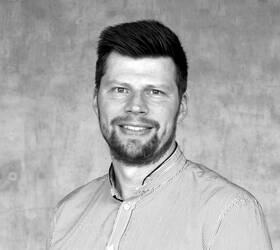Corporate Finance
This masters programme provides the necessary foundation for a career in corporate finance. Graduates will go on to work as CFOs, corporate finance specialists, financial analysts, financial consultants and investor relations professionals.
Overview

Credits
90 ECTS
Language
The language of instruction is English.
Length of study
14 months over three terms: autumn, spring and summer terms.
Internship, electives and exchange studies
Students have the option of pursuing an internship, which is evaluated for credit, take elective courses that increase the interdisciplinary nature of the programme, or do exchange studies at a partner university.
MSc or qualification at master level
Students can choose between a programme structure leading to an MSc degree and a programme structure for a qualification at master level (Master of Corporate Finance, MCF). Both require 90 ECTS credits.
MSc degree
60 ECTS of course work plus a 30 ECTS masters thesis.
Qualification at master level (MCF)
90 ECTS credits in courses. Students have the opportunity to finish an internship of up to 15 ECTS.
Tuition fees
Please follow the link below to see tuition fees at RU, per term.
Dean´s selection grant
The recipient of the Dean´s Selection Grant pays undergraduate fees instead of graduate fees.
- An application for a full-time graduate programme is also an application for the Dean´s Selection Grant for the first semester.
- Students with the highest grade in a graduate programme each semester are applicable. In order to receive the award students must complete 30 ECTS units per semester and follow the programme structure. More information about the grant can be found here.
Information for current students
Careers
Corporate management careers
The masters programme in Corporate Finance is suited for individuals who wish to work in corporate management, be it general administrative work or financial management, new business ventures/start-ups or in financial firms, such as banks, insurance providers and investment companies.
The MSc degree in Corporate Finance is also designed to develop knowledge, skills and competences for students who aim for research-oriented careers in the field of finance.
Academic staff
Researchers and guest lecturers
The main areas of research within RU´s Department of Business Administration are innovation and entrepreneurship, finance and economics, corporate governance, marketing and human resource management.
RU Department of Business Administration is committed to excellence in research and academic staff collaborates with researchers in other fields such as Computer Science and Psychology, within RU and internationally. Students also benefit from the Department's extensive network of international professors and guest lecturers from the business community.
Structure
MSc or qualification at master level
Students can choose between a programme structure leading to an MSc degree and a programme structure for a qualification at master level (Master of Corporate Finance, MCF). Both require 90 ECTS credits.
MSc degree
60 ECTS of course work plus a 30 ECTS masters thesis.
Qualification at master level (MCF)
90 ECTS credits in courses. Students have the opportunity to finish an internship of up to 15 ECTS.
Term structure
Full-time study includes 30 ECTS credits per term.
- Fall term: August-December.
- Spring term: January-May.
- Summer term: June-September.
Maximum study period
The program structure follows the idea of full-time study, but students have the opportunity to study part-time. The maximum study period is six terms (two years).
Programme structure
| MSc | ||
|---|---|---|
| Autumn | Spring | Summer |
|
|
|
| MCF | ||
|---|---|---|
| Autumn | Spring | Summer |
|
|
|
| ** Maximum 15 ECTS credits can be used for internship. |
Internship
The objective of master's program internship is to enhance students' knowledge, skills and abilities related to their core field of study. The internship should grant students that opportunity through hands on projects and by that prepare them for entering the labor market. Students will get to know the operation, culture and people of the firm/institution they conduct the internship at. Students will be assigned a supervisor within the firm/institution and a full time faculty member as a supervisor during the period of the internship. Internships are generally unpaid. Students find internship themselves, and get it approved by the Department of Business Administration.
Funding opportunities for internships
Students can apply for an Erasmus grant to go on an internship in Europe for 2-12 months. Students who have previously been in the Erasmus exchange program can apply for funding for an internship.
The amount of the grant depends on the destination, but is in the range of 450 to 550 € a month, students also receive a travel grant, in the range 275- € 1,100 depending on the destination.
Follow the instruction on the webpage Erasmus+in Iceland .
Students from RU doing internship abroad have so far always been able to receive an Erasmus grant. However, if the popularity increases, students can apply for Nordplus grant. For further information, visit the International Office at RU.
In order to find an internship there are a number of websites that can be referenced:
- NAFO
- Leo-Net Job Offer Exchange
- Europlacement
- Placement UK
- Europe Internship
- Euro Pages
- Global Placement
- International Labour Office
- Spain Internship
- Philox Connecting Europe
- AIESEC
- Global Internships
Facilities
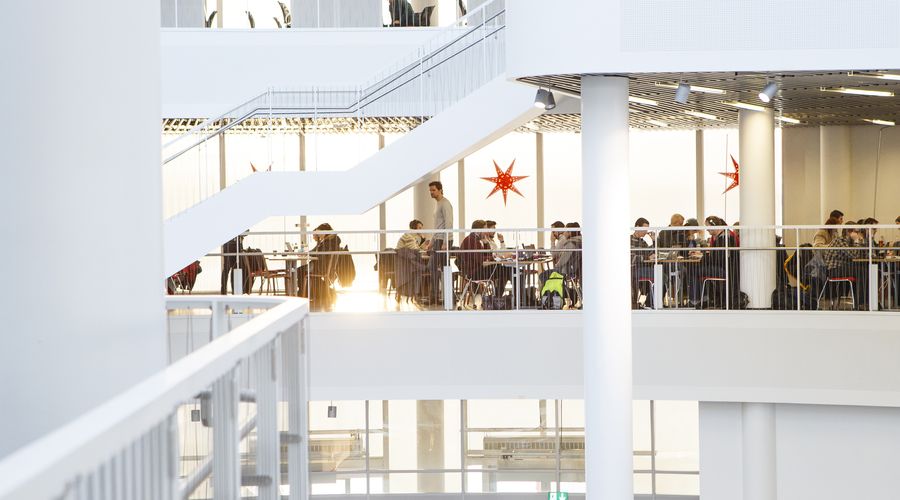
Our University building offers an optimal study environment. Support services, study areas, coffee shop and gym.
IT facilities
Our IT Services provide a range of computer facilities to help you study. IT suites are located across campus – many with 24-hour access. IT facilities also include:
- Wireless network
- Extensive printing facilities
- Adapted PCs for students with disabilities or additional learning needs
Student study areas
Students have 24-hour access, during term time, to group rooms and private study desks. There is a especially dedicated study area for Graduate students.
Student Union
The University of Reykjavik Student's Union is the focus of many student activities on campus.
Sports Facilities
In the basement of the university, World Class runs a gym which offers discounts to students.
University Book shop
In the main building you can find the book store, Boksala Studenta, which stocks all the books you will need for your studies.
Food
There are three shops and cafés in the building that sell food and beverages to students.
- Kaffitár sells a selection of coffee drinks, light snacks and bakery products.
- Malið serves hot food everyday, plus snacks and refreshments.
- The University shop (Haskolabudin) sells groceries, household items and snacks.
Reykjavik University Campus
Set in one of the most beautiful areas of Reykjavik right next to Iceland's only geothermal beach, the newly built campus offers students modern first-rate facilities. The building has well equipped classrooms and students have 24-hour access to the spacious study facilities.
Environmentally conscious
The campus is one of Iceland's most automated buildings designed to provide an environment optimal for working using the lowest amount of energy.
Automated blinds and windows
In the main areas of the building the blinds and windows are controlled by a weather station positioned on top of the University roof. The weather station collects information about wind direction and outside temperature adjusting windows accordingly, and blinds are automated to ensure direct sunlight does not disturb students working.
A breath of fresh air
The University building is constantly ventilated with natural fresh air using the NAVENT system. Fresh air is drawn into the building and then pumped into the rooms. Special CO2 monitors ensure the correct levels of oxygen in the rooms. Heaters ensure that the air pumped into the rooms maintains the correct air temperature. In the summer time the air pumps drag warm air from the building and pump fresh and cooler air in its place.
Intelligent lighting system
Every light in the University has its own IP address and is controlled by the automated system. Light sensors ensure lighting is only on when rooms are in use. Large windows let in natural daylight which creates a more pleasant working environment.
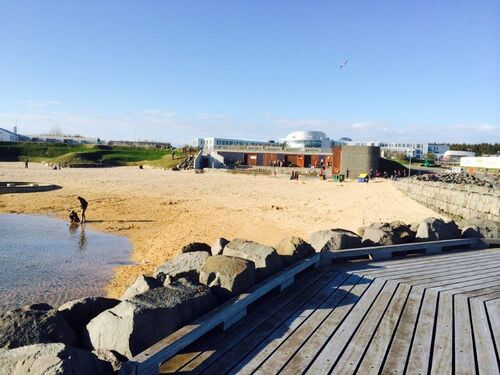
Beautiful surroundings
Our campus is in a unique position of being set in one of the most popular outdoor areas of Reykjavik.
- The University of Reykjavik is located right next to Iceland's only geothermal beach, Nauthólsvík. Students can enjoy swimming in the geothermally heated sea, or relax in the hot tub on the beach.
- Right next to the campus is the most environmentally friendly restaurant in Reykjavik, Nauthóll, which has been awarded the Nordic Environmental "Svan Certificate," and was the first restaurant in Reykjavik to receive this certification.
- Students can enjoy the many foot and bicycle paths in the neighbouring forest.
- Students can visit the nearby Perlan situated on top of the city's geothermal storage tanks.
Admissions
Application deadine
The application deadline is April 30. Applicants from outside the EU/EEA must submit an application prior to February 1.
Admissions requirements
- BSc degree in business administration, economics or related subjects.
- Individuals with a degree in other fields can apply for admission to the programme, but are required to have completed undergraduate courses from business administration in math, statistics, corporate finance and accounting.
- Generally we require a first-class grade (GPA 7.25 or above) according to Icelandic grading scale in an undergraduate programme.
- Further education and professional experience benefit applicants in the evaluation process.
- Excellent English language skills.
Applications accompanying documents
All applicants must submit an electronic application and attach the required accompanying documents. The following documents need to accompany applications (they should be supplied in English):
- Curriculum vitae with a photograph.
- Official university transcripts of records and diplomas.
- Personal statement (Why are you applying to the programme and what is your aim in pursuing the programme? [up to 300 words in English]).
- Please provide contact information for one indvidual who can assess the ability of the applicant to pursue the programme. A letter of recommendation may be required.
- For students whose first language is not English proof of English proficiency must be provided, based on, e.g., TOEFL or IELTS. Minimum English language test scores TOEFL: 577 (PBT) or 91 (iBT) or above OR IELTS: 6.5 or above, academic.
- Accompanying documents need to submitted by the application deadline. Applicants are only summoned for an interview if they have submitted all required accompanying documents on time.
Tuition fees and evaluation of previous studies
Information about tuition fees: Tuition fees.
If students have completed university-level courses, they can apply for those previous studies to be evaluated for transfer of credit.
Rules and form for evaluation of previous studies.
Contact us
Got any questions?
We welcome enquiries via e-mail or phone.
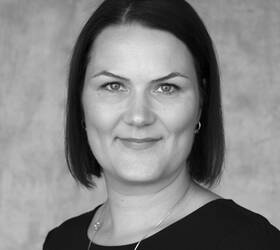
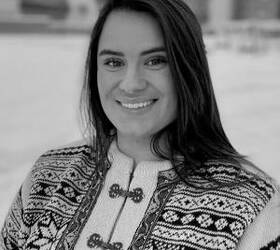
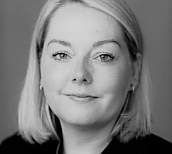
Laufey Bjarnadóttir (on a leave)
Programme Administrator
